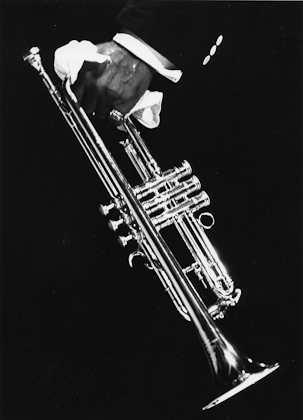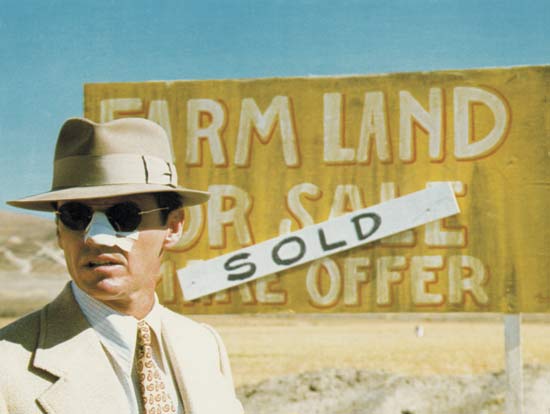Mrs. T and I returned to Connecticut yesterday to spend a few days in one place after a long stretch of theater-related travel. Since I have two pieces to write for The Wall Street Journal this week, I’m not going to do any heavy-duty blogging, but I did want to pass on these two noteworthy links:
 • Satchmo at the Waldorf, my new play about Louis Armstrong and Joe Glaser, and Pops, my Louis Armstrong biography, are based in part on the six hundred and fifty surviving reel-to-reel tapes of private recordings, some of them astonishingly intimate, made by Armstrong during the last quarter-century of his life. These tapes are now on deposit at Queens College’s Armstrong Archives. While anyone can listen to them, you have to go to Queens College to do so–but the BBC just put together an hour-long radio documentary called Satchmo by Satchmo: The Louis Armstrong Tapes that is made up in part of well-chosen excerpts from the tapes. It aired in England last week, and you can listen to it by going here. (The program starts at 2:09.) If you’re at all interested in Armstrong, I strongly recommend that you give a listen.
• Satchmo at the Waldorf, my new play about Louis Armstrong and Joe Glaser, and Pops, my Louis Armstrong biography, are based in part on the six hundred and fifty surviving reel-to-reel tapes of private recordings, some of them astonishingly intimate, made by Armstrong during the last quarter-century of his life. These tapes are now on deposit at Queens College’s Armstrong Archives. While anyone can listen to them, you have to go to Queens College to do so–but the BBC just put together an hour-long radio documentary called Satchmo by Satchmo: The Louis Armstrong Tapes that is made up in part of well-chosen excerpts from the tapes. It aired in England last week, and you can listen to it by going here. (The program starts at 2:09.) If you’re at all interested in Armstrong, I strongly recommend that you give a listen.
 • Two years ago I wrote “The Perfect Film Score,” a Journal column about Jerry Goldsmith’s wonderful score for Roman Polanski’s Chinatown:
• Two years ago I wrote “The Perfect Film Score,” a Journal column about Jerry Goldsmith’s wonderful score for Roman Polanski’s Chinatown:
The score to “Chinatown” features a highly unorthodox instrumental lineup: one trumpet, four pianos, four harps, two percussionists and a string section. At first glance that looks like the sort of ensemble from which you’d expect to hear a piece of avant-garde classical music, and some parts of the “Chinatown” score are startlingly modern-sounding. But the film opens with an elegiac yet sensuous trumpet solo that floats freely over a cushion of tolling harps and brooding strings, a “love theme” that evokes the doomed romance of Jack Nicholson and Faye Dunaway, the film’s stars. Uan Rasey, the celebrated Hollywood studio trumpeter heard on the soundtrack, later told an interviewer that Arthur Morton, Goldsmith’s arranger, “told me to play it sexy–but like it’s not good sex!”
The tension between the dark romanticism of the string-accompanied love theme and the crisp, bristly clatter of pianos and percussion is what gives Goldsmith’s spare score its powerfully individual quality. Though “Chinatown” runs for 131 minutes, it contains only 23 minutes of music–but every note counts. Instead of the usual wall-to-wall underscoring, Goldsmith saves his fire for the film’s key moments, allowing most of Robert Towne’s Chandleresque dialogue to be heard “in the clear.” The result is a score so intense and concentrated that it can be listened to independent of the film with equal pleasure…
Incredibly, the soundtrack CD of Chinatown has been out of print for years, and no one has ever bothered to re-record Goldsmith’s score in its entirety. So it’s very good news indeed that the Chinatown album is now available as an mp3 download. To order it, go here.
